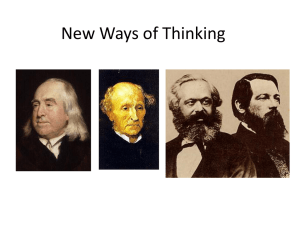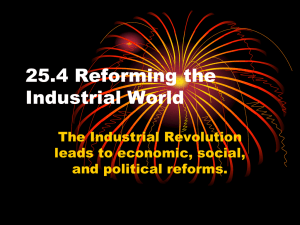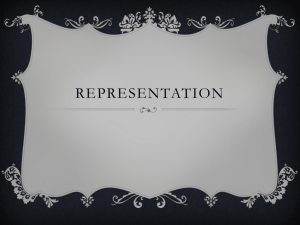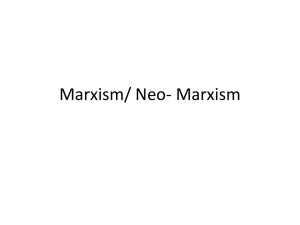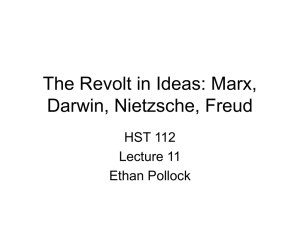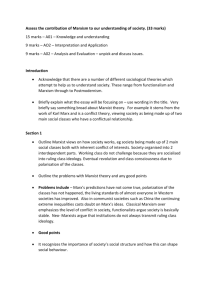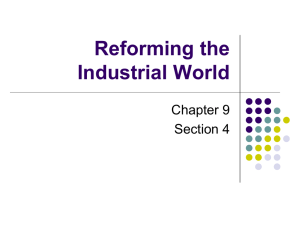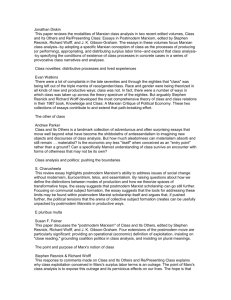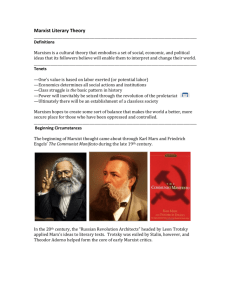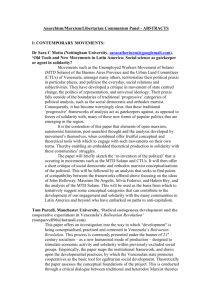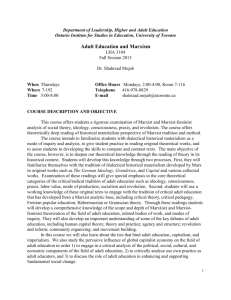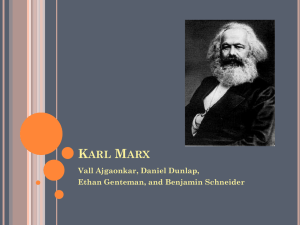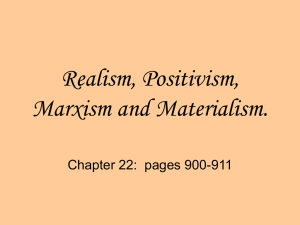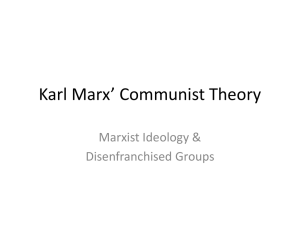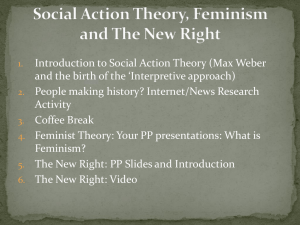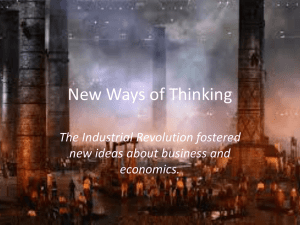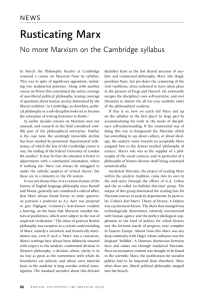Discussion on Park, “A Critique of Overdetermination Marxism”
advertisement
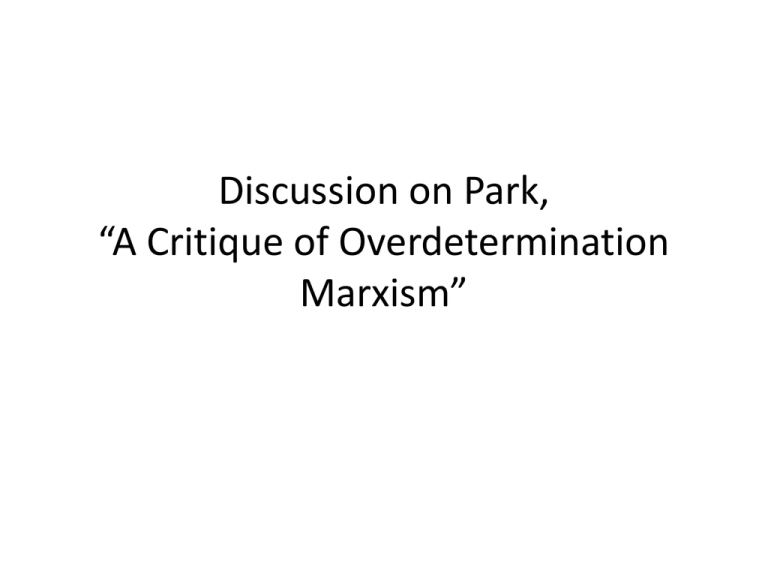
Discussion on Park, “A Critique of Overdetermination Marxism” The “Marx Problem” 1848 “WORKINGMEN OF ALL COUNTRIES, UNITE!” (ideology) Manifesto 1859 “My inquiry led to the conclusion that neither legal relations nor forms of state could be grasped whether by themselves or on the basis of a so-called general development of the human mind, but on the contrary they have their origin in the material conditions of existence, the totality of which Hegel, following the example of the Englishmen and Frenchmen of the eighteenth century, embraces the term “civil society”; that the anatomy of this civil society, however, has to be sought in political economy” (scientific socialism) Preface to a Contribution 1865 “Trade unions work well as centres of resistance against the encroachments of capital. They fail partly from an injudicious use of power. They fail generally from limiting themselves to a guerilla war against the effects of the existing system, instead of simultaneously trying to change it, instead of using their organized forces as a lever for the final emancipation of the working class, that is, the ultimate abolition of the wage system.” (ideology) Speech to 1st International 1877 “This crisis [Russo-Turkish war and Near Eastern crisis] is a new turning point in European history. Russia has long been standing on the threshold of an upheaval, all the elements of it are prepared--I have studied conditions there from the original Russian sources, unofficial and official (the latter only available to a few people but got for me through friends in Petersburg).” (relativization of scientific socialism) Marx letter to Sorge Thus the post-Marx “Marxists” need to find a way to reconcile Marx’s inconsistency between ideology and historical materialism, as well need to explain scientific socialism’s proposal that the inevitable Revolution will occur under capitalist stage of history yet actually occurred in a pre-capitalist society (Russia). Althusser attempted to reconcile the economic determinism of scientific socialism with the idealistic by re-’reading’ Marx’s writings in order to explain the Russian Revolution and borrowed Freud’s concept of ‘overdetermination’ to say that the base and superstructure are co-determined. Althusser uses Lenin’s concept of ‘weakest link’ where aggregated contradictions in noneconomic spheres provide economic “rupture point” for Revolution. Park believes that post-modern Marxism (specifically Resnick & Wolf and Ameriglio & Callari) oversimplifies overdetermination. Park calls this OM (Overdetermination Marxism). In the paper Park conducts an immanent critique of OM and finds: 1) post-modern Marxism reduces Marx to an epistemologist, not a social scientist 2) OM is itself reductionist, applying a fruitless essentialist – non-essentialist reading to Marxian and Marxism thought 3) Marxism is reduced to relativism where both economic and non-economic spheres carry equal weight in history’s progress, and, 4) ‘Entry point’ means science (or is it just Marxism?) is reduced to a “theory shaped by trivial chance events experienced by one individual” (e.g. the reader of the text). 5) OM “flattens” Althusser and makes Marxism ahistorical without addressing the grand narrative of historical progress attempted by Marx General comment on the paper: Excellent critique, insightful, in-depth and well-argued logically and textually Suggestions: Sometimes unclear whether comparing OM to Marx or post-Marx Marxism in general Sometimes unclear whether addressing post-Modernism in general or OM OM means Resnick & Wolff, then later Ameriglio & Callari thrown in, so somewhat unclear definition of OM What is Park’s resolution to the “Marx problem” of inconsistencies in Marx’s use of ideology and historical materialism, and the failure of scientific socialism to explain the Revolution? A modest (perhaps “reactionary”) proposal: Can’t we look at Marx’s writings on historical progression in terms of J.S. Mills “general tendencies” and “countervailing tendencies”? Isn’t “entry point” similar to “reflexivity” (R.K. Merton, K. Popper) in social science where bias of researcher acknowledged up-front?
